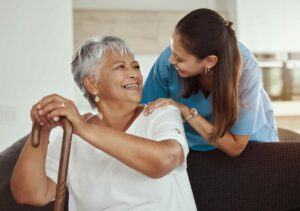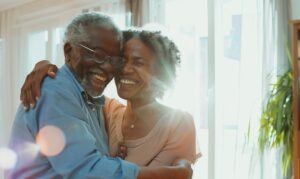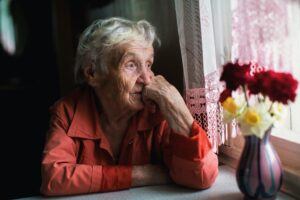Falls are one of the leading causes of hospitalisations in Australia, with the rates for falls increasing as people get older[1]. Falls can not only cause injury but also affect your loved one’s confidence. At Home Care Australia, we know the effect that falls can have on an older loved one. Therefore, we have put together this blog on the five steps you should take after a fall.
Step 1: Get a Medical Check-up
Getting a medical check-up after a fall allows any injuries sustained to be identified. It also provides for investigating health conditions that may have affected your loved one, causing them to fall. Lots of chronic health conditions, such as arthritis, diabetes, poor vision, orthostatic hypertension, Parkinson’s Disease, and more, can cause a person to have a fall. Ensuring such conditions are identified and properly treated can help reduce the risk of falls in the future.
Step 2: Identify any Medications Your Loved One is Taking
Medications can have side effects, as well as interactions with each other. It is a good idea to find out what medications your loved one is taking, including any over-the-counter ones. Look up the side effects to see if they may cause falls or dizziness. It can also be a good idea to take any medications your loved one is using with you to their medical check-up in step one and ask their doctor if they are still appropriate. Disposing of old medications is essential so they are not accidentally taken.
Step 3: Encourage Your Loved One to Stay on Top of Any Health Conditions
By keeping on top of medications, appointments, and health management recommendations, your loved one will reduce their risk of falls. This includes having their eyes and hearing checked and wearing or using any recommended aids such as glasses, hearing aids, or walkers.
Staying active can also help reduce the risk of falls. If your loved one is not exercising regularly, talk to them about suitable exercise programs they can participate in. It does not have to be anything fancy. Even a short walk every day will help.
Eating regular, healthy meals is also an important part of staying healthy. Eating unhealthy meals increases the risk of many health conditions that can increase the risk of falls. If your loved one is having difficulty shopping or with meal preparation, you may want to investigate some home care, such as that provided by Home Care Assistance, to support them with shopping and meal preparation.
Step 4: Have their Home Evaluated for Safety.
Most falls occur in the home. If your loved one has had a recent fall (or near fall), it is worth getting an expert to evaluate the house to see what can be done to improve safety. This might include adding grab bars and a shower chair and reducing trip hazards such as rugs or clutter.
Step 5: Help Your Loved One Get Over Their Fear of Falling.
Falls can damage a loved one’s confidence just as much as they can cause injury. However, if your loved one starts to move less to avoid falling, this can increase the risk of falls by reducing their strength and mobility.
You can build a loved one’s confidence by ensuring you have done everything to reduce the risk of falls, such as removing trip hazards and inserting grab rails. Building strength can also help to reduce the risk of falls. Often, doing these things and encouraging them to move around will be enough to help your loved one regain their confidence.
However, if they are still struggling to overcome their fear, and it is affecting their behaviour, consider some form of counselling.
The risk of falls increases as we get older. Falls can cause not only physical injury but also damage a loved one’s confidence and affect their activities. This, in turn, can further increase their risk of falls. Implementing the above steps can reduce the risk of falls and help your loved one regain their confidence.
Support at home from a specialist provider, such as Home Care Assistance, can bring enormous benefit and comfort to your quality of life while living independently at home. Home Care Assistance has viable solutions when it comes to supporting independent living. For more information, get in touch with a Home Care Assistance near me today.
As a leading age care provider, Home Care Assistance offers tailored in-home care services for older Australians, enabling them to live happier and healthier lives in the comfort of their own homes.
We offer private and government subsidised Care Packages and have office locations that are a registered NDIS provider. Our Care Workers undergo extensive training in order to deliver unmatched in-home aged care services where people can continue ageing in place. We are proud ambassadors of the My Aged Care government funded aged care program, enabling Australians to successfully navigate the process and gain approval for in-home care support packages. Home Care Assistance offers hourly care, specialised care, Alzheimer’s and Dementia care, hospital to home care, and 24 hour in home care.













